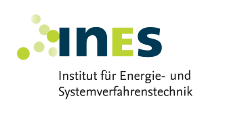Energy Systems
*This course is offered in English only.
Qualification Objectives:
Completing the "Energy Systems " course equips students with a deep understanding of energy fundamentals, including electrochemical, chemical energy, mechanical and nuclear energy and their real-world applications. They become proficient in conventional and renewable energy systems, capable of calculating energy flows and efficiencies. Students also master energy storage methods and network principles, including intelligent energy management. With the ability to design energy systems and choose sustainable solutions, they are prepared for careers in energy production, storage, and management, while staying updated on industry trends and emerging technologies.
Contents:
Energy Fundamentals
Energy Carriers
Chemical Reactions and Combustion Systems
Electrochemical Reactions
Electrochemical Energy Conversion
Heat Transfer and Thermodynamic Cycles
Solar and Photovoltaic Systems
Mechanical Energy Systems
Nuclear Energy Systems and Reactor Design
Energy Storage, Distribution, and Management
